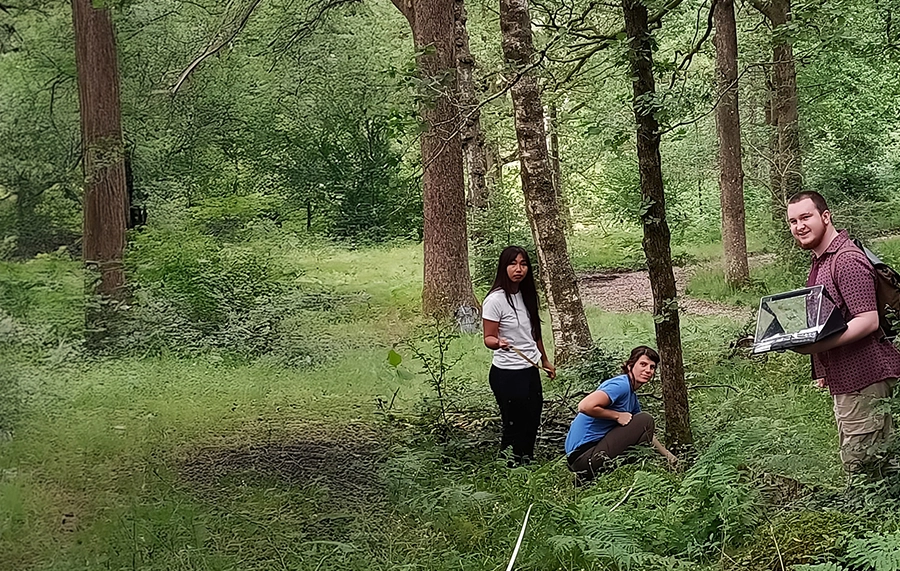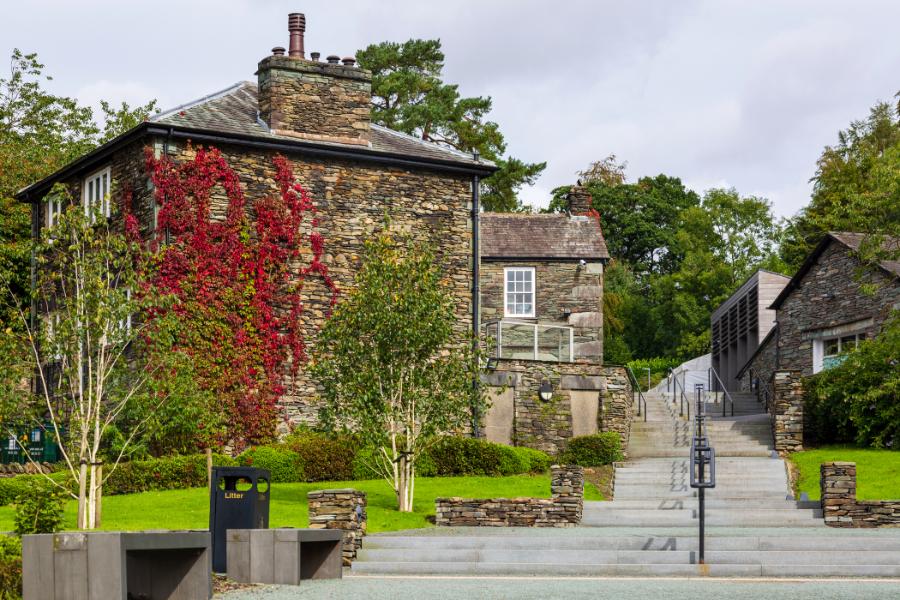BSc (Hons) - Forest Management
Get ready to shape and save the future of our environment, tackle critical issues and make a lasting impact on our planet. Learn from world-leading experts how to work with nature, not against it.
You will be based at the National School of Forestry in our inspiring Ambleside campus, nestled in the heart of the Lake District National Park. Your environment will serve as your classroom as you study woodlands and forests.
Under the guidance of leading industry experts, you will be immersed in their dedication to research. You can tap into their extensive network, whilst taking advantage of Cumbria’s strong national and global partnerships.
Hone your practical skills through field experiences, conducting personal research and taking part in immersive, hands-on learning. Simultaneously, cultivate industry relevant business skills that pave the way for a broad spectrum of career opportunities.

Course Overview
If you’re passionate about managing woodlands for the benefit of people and planet, our Forest Management degree offers the perfect blend of theory, practical skills and real-world application.
You’ll study how to manage forests for commercial, recreation and conservation purposes, with your core modules focusing on silviculture, woodland ecology, forest health and forest management planning. You'll also gain extensive hands-on experience in diverse woodland environments, from ancient semi-natural woodland to plantations.
As part of the course, you'll study cross-cutting and professional modules that develop essential competencies for modern forestry. These skills are introduced gradually and reinforced throughout your studies. For example, you’ll begin learning Geographic Information Systems (GIS) in your first year, progressing from basic data mapping to advanced forest analysis using remote sensing and complex datasets by your final year.
Our vocationally focused degree is designed to prepare you for a career as a professional forest manager both in the UK and internationally. You’ll have the opportunity to build your experience through employment, placements, work experience and volunteering opportunities, helping you graduate with the skills and confidence employers value.
On this course you will...
- Develop skills and knowledge that is attractive to forestry employers.
- Be taught by tutors who have worked as professional foresters and bring their first-hand experience to their teaching.
- Be a part of small class sizes, meaning you’ll get personal tutor guidance and support throughout your studies.
- Experience hands-on forestry frequently, thanks to our practical-focused approach.
Location
Ambleside Campus
Nestled in the Lake District National Park, a UNESCO World Heritage site, the Ambleside campus is the perfect place for world-savers, animal lovers, and adventurers. There is never a dull moment when surrounded by such natural beauty and opportunity.
Find out more
Find out more about studying with us
Attend an Open Day at Cumbria
An Open Day is your opportunity to explore one of 5 campuses, meet your lecturers, and find out how the University of Cumbria could become your new home.






